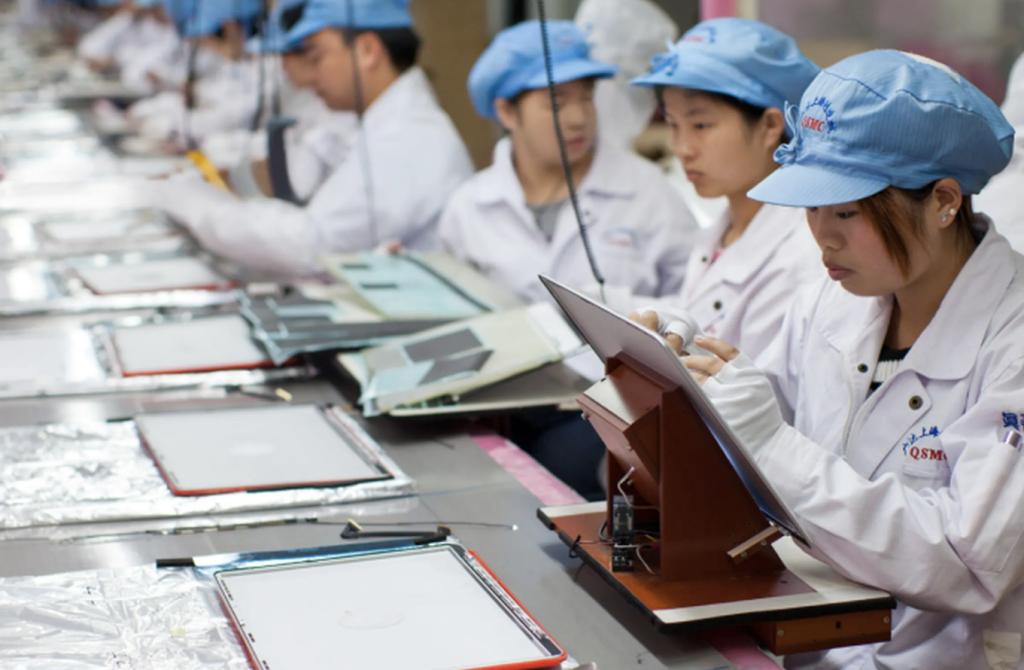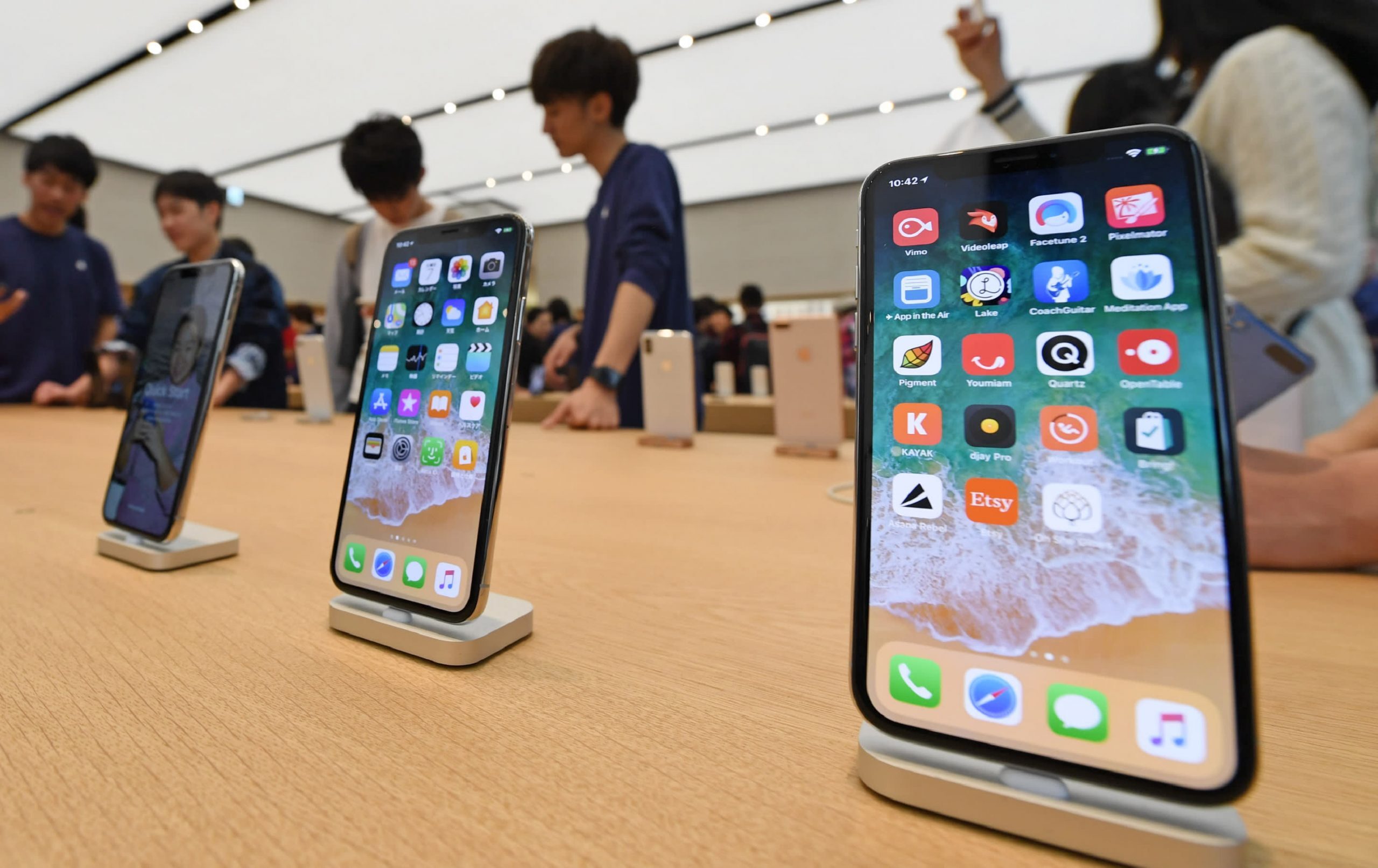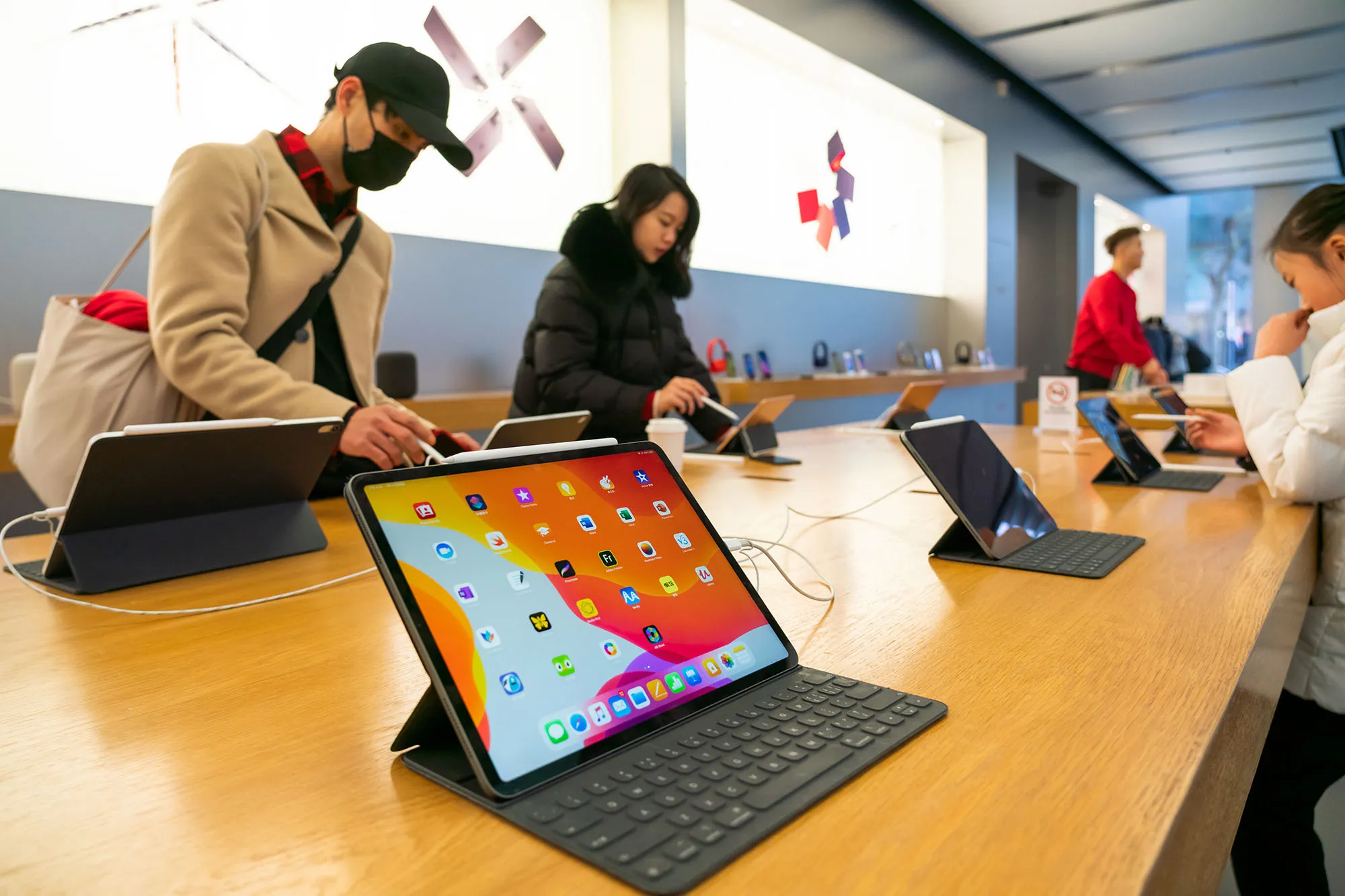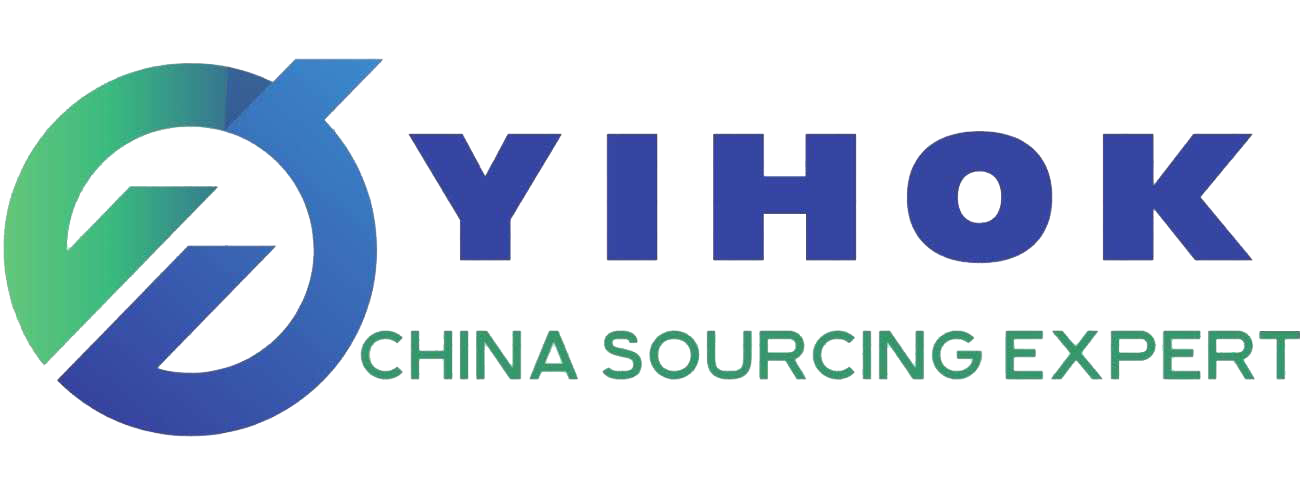Apple is a multinational technology company with worldwide fame for its innovative products and designs. One of the key components of its success is its manufacturing process, with a significant portion of its products being made in China. The company has a strong relationship with Apple manufacturers in China and has been working in the country for many years. The manufacturing of Apple products in China is an important aspect of the company’s business strategy. In recent years, China has become a hub for manufacturing due to its skilled labor force, low labor costs, and access to raw materials. According to a report by the New York Times, Apple’s manufacturing partners in China employ over one million workers who work on the production of Apple products. These workers work in factories that are run by companies such as Foxconn, Pegatron, and Wistron. China’s role in Apple’s manufacturing process is reflected in the company’s financial reports. In 2023, Apple reported that its revenue from China had increased by 57% compared to the previous year. The increase was attributed to the strong demand for Apple’s products in China, which was largely driven by the popularity of the iPhone.
Who isn’t aware of Apple. It is one of the giants in the tec-world. However, what most people don’t know is that Apple has close ties with Apple manufacturers in China. They are working day and night to provide clients with top-notch quality, each time – every time. This clearly busts the myth that Chinese manufacturers are not producing high-quality products. If they were not, why would Apple have a manufacturing plant in China? In this chapter, we are going to explore the collaboration of Apple Manufacturer in China and Apple.

1) Early Beginnings in China
Apple began working with Chinese manufacturers in the 1990s. Initially, the company partnered with Taiwan-based Foxconn, which established a factory in Shenzhen, China. Over time, the relationship between Apple and Foxconn grew stronger, and the latter became the primary manufacturer of Apple products in China.
2) Current Chinese Manufacturing Partners
Today, Apple works with several manufacturers in China to produce its products. There can be many reasons for this. The primary one is the increased production which one manufacturing unit can’t handle.
Besides Foxconn, the company partners with Pegatron, Wistron, and Luxshare Precision. These manufacturers operate facilities across China and are responsible for producing various Apple devices, including the iPhone, iPad, and MacBook.
3) Labor Force and Working Conditions
Apple Manufacturer employs a vast workforce in China, with some estimates suggesting that the company has over one million employees in the country. The working conditions in these factories have been the subject of much scrutiny, with reports of low wages, long working hours, and poor safety standards. But this has been cleared a number of times before. Still, these speculations keep on rising.
4) Technology and Innovation

The partnership between Apple and Chinese manufacturers has resulted in significant technological advancements in the manufacturing industry. For instance, the factories employ robotics and automation to increase efficiency and reduce costs. Additionally, Chinese manufacturers have become increasingly adept at producing high-quality products at scale.
5) Impact on the Chinese Economy
Apple’s entry into the Chinese market has brought about substantial changes to the country’s economy. The establishment of manufacturing facilities by Apple suppliers in China has led to the creation of numerous jobs, providing employment opportunities for a significant workforce.
Furthermore, Apple’s operations in China have played a pivotal role in boosting the country’s exports. The production of iPhones, iPads, and other Apple devices in China has resulted in a surge in export figures, contributing significantly to the nation’s trade balance.
In addition to job creation and export growth, Apple’s presence has fueled technological innovation in the Chinese manufacturing sector. The collaboration between Apple and its Chinese manufacturing partners has led to advancements in production processes and the development of cutting-edge technologies.
Despite these positive aspects, concerns have been raised about the social and environmental impact of Apple’s operations in China. Reports of worker exploitation in Apple’s supply chain, including issues related to working conditions and wages, have drawn criticism.
Additionally, the environmental cost of producing electronic devices, such as the disposal of electronic waste and pollution from manufacturing processes, has raised environmental concerns.
Chapter 2: Why Does Apple Manufacture Products in China?

Are you wondering why Apple has an Apple manufacturer in China? Or, do you want to know why Apple is so keen on having its products manufactured only in China. It does come as a surprise why Apple gets its products manufactured in China. Why not in America or England? What is it in China that other multinational giants also have production facilities in China.
This chapter discusses all those reasons in detail.
1) It’s Cost Effective to Manufacture in China
Initially, Apple’s decision to manufacture its products in China was because of a major factor: the cost advantage. At a point in time, China was one of the lowest wage country for labor. However, things have changed. Now, China does not rank on the bottom when it comes to worker wages.
Furthermore, China has a vast reservoir of proficient workers who are willing to work more hours for modest wages. The simple demand and supply deficit does not allow workers to ask for very high wages. The demand for labor is more than the supply – hence the cost of labor does not increase much.
No one can doubt the cost-effectiveness of production in China. Chinese manufacturers have achieved economies of scale that allows them to product at a minimal price.
2) China Offers a Vast Skilled Workforce

China has a large pool of skilled workers who are adept at producing high-quality products at scale. Chinese workers are known for their ability to work quickly and efficiently, which is essential for producing large quantities of products within a short period. Additionally, China has a robust ecosystem of suppliers and subcontractors, which allows Apple to source the components it needs quickly and efficiently.
Moreover, the skills of Chinese workers are not limited to production alone.
China is also home to a growing number of engineers and researchers who are working on cutting-edge technologies. This has made China an attractive location for research and development, with Apple establishing several R&D centers in the country. All in all, Chinese workforce is a one-in-all package.
3) Access to a Large Consumer Market
China is the world’s largest consumer market, with over 1.4 billion people. By manufacturing products in China, Apple can sell its products directly to Chinese consumers without incurring high import tariffs. Additionally, China has a growing middle class with increasing purchasing power, making it an attractive market for Apple’s products.
Not only this, but the Apple manufacturer in China is also producing goods that are acceptable world-wide because of their high quality. Moreover, with the technological advancement, the world is your consumer!
4) Favorable Regulatory Environment for Foreign Companies
The regulatory environment in China is relatively favorable for foreign companies, with the Chinese government providing various incentives and tax breaks to attract foreign investment. Additionally, the Chinese government has invested heavily in infrastructure and technology, which has helped to create a conducive environment for manufacturing.
However, there are also risks associated with the regulatory environment in China. The government has a significant influence over businesses, and foreign companies have to navigate a complex web of regulations and bureaucracy. Additionally, there is the risk of intellectual property theft, which has been a longstanding concern for foreign companies operating in China.
5) Favorable Political and Social Factors
Finally, there are political and social factors that have influenced Apple’s decision to manufacture products in China. For instance, the Chinese government has made significant investments in education and infrastructure, which has helped to create a skilled workforce and a conducive environment for manufacturing. Additionally, China’s long-term economic growth prospects have made it an attractive location for foreign investment.
Secondly, the political environment in China is very favorable. The economy is strong and the political peace in the country attracts a lot of foreign investment to China.
Chapter 3: Types of Apple Products Manufactured in China

In this chapter, you will learn about the different types of Apple devices created in China. From iPhones to MacBooks and other gadgets, we’ll discover the various technology wonders originating from the manufacturing hub in China.
1) iPhones

The iPhone is one of Apple’s most popular products, and a significant portion of its manufacturing is done in China. The country is home to some of the world’s largest smartphone manufacturing facilities, making it an attractive location for Apple.
The iPhone’s manufacturing process involves several components, such as the screen, battery, processor, and camera, which are all manufactured in China. All of these components are gathered from different suppliers in China. Once all of these parts are gathered, they are send to Foxconn.
The assembly of the iPhone is done in factories owned by Foxconn, one of Apple’s major suppliers.
2) iPads

Apple’s iPad is another popular product that is manufactured in China. The manufacturing process for the iPad is similar to that of the iPhone. The device’s components are sourced from different suppliers in China, and the assembly is done in factories owned by Foxconn.
Apple has been manufacturing iPads in China since the product’s introduction in 2010. This shows the level of confidence that the company has on its Chinese manufacturers.
3) MacBooks
Apple’s MacBook is a high-end laptop that is manufactured in China. The components of the macbook are not produced by Foxconn itself. However, Apple sources these products from different manufacturers in China and then sends it over to Foxconn. All these parts are then assembled into the final product i.e. the Macbook.
Apple has been manufacturing MacBooks in China since 2001.
4) AirPods
Apple’s AirPods are a popular wireless earbud product that is also manufactured in China. Since its introduction, the Chinese manufacturers of Apple have had a tough time keeping up with the increasing demand. Again, Foxconn manages the assembly of the airpods.
5) Apple Watches

The Apple Watch is another popular product that is manufactured in China. Quanta Computer is one of the biggest suppliers for Apple products in China. They are responsible for assembling the Apple watches in their factory. The components are sourced from other suppliers.
The watch’s popularity has been on the rise since its introduction in 2015, and Apple has been increasing its manufacturing capacity in China to meet the growing demand.
6) HomePods
Apple’s HomePod is a smart speaker that is also made in China. The product’s components are sourced from suppliers in China, and the assembly is done in factories owned by Foxconn. The HomePod’s manufacturing process involves sourcing high-quality audio components and assembling them in a way that produces the best sound quality possible.
Apple has been manufacturing HomePods in China since 2018.
7) iPods
The iPod is a portable music player that has been a popular product for Apple since its introduction in 2001. The manufacturing of iPods is primarily done in China, with assembly carried out by Foxconn. According to a report by the Financial Times, Apple manufactured around 14 million iPods in China in 2018.
However, the popularity of the iPod has declined in recent years, and the company discontinued the product in 2017.
8) Apple Pencil

The Apple Pencil is a stylus designed for use with the iPad and iPad Pro. The product is manufactured in China, with assembly carried out by Foxconn. The Apple Pencil has been popular with artists, designers, and note-takers since its introduction in 2015.
According to a report by Statista, Apple sold around 10.6 million units of the Apple Pencil in 2020.
9) Apple TV
The Apple TV, a product designed by Apple, is a digital media player that enables users to enjoy video content on their television screens.
This device is manufactured in China, and the assembly process is carried out by Foxconn, a well-known electronics manufacturer.
According to a report from TechCrunch, Apple achieved significant sales success in 2020, selling approximately 14 million units of the Apple TV.
Apple is actively enhancing the user experience by expanding its content library available on the Apple TV platform. In addition to this, the company introduced a new and improved version known as the Apple TV 4K.
This upgraded model offers enhanced features and capabilities, contributing to Apple’s commitment to delivering innovative and high-quality products to its users.
10) AirTag

The AirTag is a small tracking device designed to help users locate lost items such as keys, backpacks, or luggage. The product is manufactured in China, with assembly carried out by Luxshare, one of Apple’s major suppliers. According to a report by Statista, Apple sold around 1.4 million AirTags in the second quarter of 2021, just a few months after the product’s introduction in April. The AirTag has been praised for its ease of use and accuracy in locating lost items.
Chapter 4: Impact of Apple Manufacturers in China on the Country’s Wholesale Markets

Apple started manufacturing its products in China in 2001. The country is the largest producer of iPhones in the world, with approximately 90% of iPhones being produced in China. Apart from iPhones, China also produces other Apple products like iPads, iPods, and MacBooks.
The main reason behind Apple’s decision to manufacture in China is its low labor cost, skilled workforce, and large-scale manufacturing capabilities.
Apple has also made significant investments in its manufacturing operations in China. In 2021, the company announced plans to invest $430 million in a new research and development center in Shenzhen, China. The center will focus on the development of new technologies and will employ over 1,000 engineers.
Here is how the wholesale markets have evolved because of Apple manufacturers in China.
1) Improving Quality Standards in the Manufacturing Sector
The presence of Apple manufacturers in China has improved the quality standards of the wholesale markets. Apple is known for its strict quality control procedures, and this has had a ripple effect on other manufacturers in the region, leading to an overall improvement in the quality of goods produced,
Apple has their own huge RnD team that is working around the clock to provide the users with something new. To meet the increased demands of the users, Apple is putting in everything they have. From this, the Chinese manufacturers and suppliers are learning a lot.
2) Reducing Cost of Overall Manufacturing due to More Competition
The competition for Apple’s business has driven down the costs of manufacturing in China. This has made it more affordable for other manufacturers to produce goods, which has led to a wider variety of products available for foreign buyers in the China wholesale markets.
3) Greater Access to Technology in the Manufacturing Industry
Apple’s presence in China has provided greater access to technology and resources that were previously unavailable. This has led to an overall improvement in the technological capabilities of the region, which has made it more competitive on a global scale.
Apple has brought its own research and technology to the Chinese market. The Apple manufacturer in China is not allowed to tell the secrets as they have copyright and legal repercussions. Nonetheless, once the technology is introduced, anyone can take advantage of it.
4) Increase in Trade Opportunities for Foreign Buyers
Having Apple makers in China doesn’t just help local folks; it’s also great for people from other countries. Think of it like this – because Apple products are made there, people from around the world want to buy them.
This creates more chances for local businesses to sell their goods globally.
Imagine a small factory in China that makes a part for an Apple product. Now, because people from other countries want to buy that product, this factory gets more orders.
That means more work for the local people and more money flowing into the local economy.
So, having Apple manufacturers in China isn’t just good for the big companies; it’s also good for the little ones, creating jobs and making the economy stronger.
5) Enhancing Innovation in the Local Manufacturing Industry
Apple is known for its innovation and product development, and its presence in China has spurred innovation among local manufacturers. According to a report by the World Intellectual Property Organization (WIPO), China was the top country for patent applications in 2020, with over 1.4 million applications filed.
This is a reflection of the increased innovation and technological development in the region, which has been partly driven by Apple’s presence.
6) Improvement in the Working Conditions with Strict Quality Standards
Apple has been known to have strict standards for working conditions in its manufacturing facilities, and this has had a positive impact on the working conditions of other manufacturers in the region.
According to a report by the Fair Labor Association, 94% of Apple’s supplier facilities in China were found to be in compliance with the company’s code of conduct, which includes standards for working hours, wages, and health and safety.
7) Improving the Overall Supply Chain Process
Apple’s supply chain is known for its efficiency and reliability, and its presence in China has helped to enhance the supply chain capabilities of the region. This has led to faster turnaround times and more reliable delivery of goods for foreign buyers in the China wholesale markets.
Overall, the impact of Apple manufacturers in China on the China wholesale markets for foreign buyers has been largely positive.
It has led to improvements in quality, efficiency, and technology, as well as increased trade opportunities and reduced costs.
Chapter 5: List of Apple Manufacturers in China
Most of Apple’s products, such as iPad, MacBook, iPhone, etc., are manufactured in China. This manufacturing presence of Apple products in China has created multiple job opportunities which has greatly upgraded the Chinese economy.
Now you might be curious to know the names of Apple Manufacturers in China, right? Relax! In this chapter, we’ll explore all the top Chinese companies that work with Apple.
These companies assist in supplying the parts required to make Apple products like iPhones, iPads, and so on. So, let’s have a look!
1. Foxconn

a) About the Company: Foxconn is the world’s biggest contract manufacturer of electronic devices. It is headquartered in Taiwan but has various factories in China. This company was launched in 1974 and now has become a top brand in the global electronics manufacturing services (EMS) industry.
b) History of Foxconn’s Partnership with Apple: Foxconn’s partnership with Apple was started in the early 2000s and gradually became Apple’s biggest manufacturing partner.
In 2018, Foxconn brought in approximately 175 billion dollars in revenues and was rated 24th on the Fortune 500 list. The Fortune 500 is a yearly list posted by “Fortune Magazine” that ranks the 500 largest organizations in the US by their total income.
c) Foxconn’s Production for Apple: Foxconn produces different Apple products such as iPad, iPhone, MacBook, etc. However, its main focus is on producing MacBooks and iPhones.
d) Foxconn’s Main Production Facilities in China: Foxconn’s main production bases include cities like Zhengzhou, Shenzhen, Chengdu, and several other areas. The Zhengzhou manufactory is the world’s biggest iPhone production facility with hundreds of thousands of workers.
2. Pegatron

a) Company Profile: Pegatron is another large electronic manufacturing company. This company is also headquartered in Taiwan with various production centers in China. It was started in 2008. Pegatron has numerous production factories and R&D centers worldwide.
b) Pegatron’s Partnership with Apple: Apple counts on Pegatron as one of its trusted manufacturers. Pegatron and Apple are in a long-term and consistent partnership, however, its position is a little less dominant than Foxconn.
c) Pegatron’s Production for Apple: Pegatron is responsible for producing iPads and iPhones.
d) Pegatron’s Main Production Bases in China: In China, Pegatron’s main production bases are located in Kunshan and Shanghai. They both are responsible for manufacturing a huge number of Apple devices, however, the factory in Shanghai is more dominant because it is one of Pegatron’s largest production sites.
3. Wistron

a) Company Profile: Wistron is a Taiwanese electronics manufacturing company that focuses on producing communication and information technology products or devices. This company was established in 2001 and has made its name as one of the world’s best electronic manufacturing service providers.
b) Wistron’s Partnership History with Apple: Wistron’s partnership with Apple began in 2015 which itself describes that it is one of Apple’s trusted manufacturing partners.
c) Wistron’s Production for Apple: Wistron’s products for Apple include iPhones, MacBooks, and iPads but it is mainly responsible for manufacturing iPhones.
d) Wistron’s Main Production Facilities in China: The main production bases of Wistron in China are located in Chongqing and Kunshan cities.
4. Luxshare Precision

a) Company Profile: Luxshare Precision is one of the good electronics manufacturing companies from China. This company focuses on producing connectors and electronic components. It was established in 2004 and became one of the most popular connector manufacturers globally.
b) Luxshare Precision’s Partnership with Apple: This company has gradually become a good partner of Apple in recent years.
c) Luxshare Precision’s Production for Apple: Luxshare Precision mainly focuses on producing AirPods and other such accessories.
d) Luxshare Precision’s Main Production Bases in China: The main bases of Luxshare Precision in China are located in Kunshan and Dongguan. The factory located in Dongguan is one of the core production bases of Luxshare Precision.
5. Goertek

a) Company Profile: Goertek company was founded in 2001. It is a well-known Chinese electronics manufacturing facility that produces acoustical products and smart hardware.
b) Goertek’s Partnership with Apple: Goertek’s partnership with Apple began in 2017.
c) Goertek’s Production for Apple: Goertek mainly manufactures audio devices like AirPods.
d) Goertek’s Main Production Facilities in China: Goertek’s main production factories are located in Qingdao and Weifang. The company in Weifang is one of the major production bases of Goertek.
Chapter 6: Opportunities and Challenges Faced by Chinese Manufacturers

1) Main Challenges Faced by Chinese Manufacturers
a) Increasing Labor Costs: With China’s growing economy, labor costs are also rising, which has put a little pressure on Chinese manufacturers. To address this, manufacturers need to concentrate on technical innovation and automation in production.
b) Social and Environmental Responsibility Standards: Manufacturers must stick to stricter environmental rules and social responsibility standards to ensure their production procedures are safe and environmentally friendly.
c) Need for Technological Upgrades and Innovation: With changing market demands and quick technological progress, manufacturers must continually innovate and upgrade their technology to stay competitive.
2) Future Opportunities

a) Application of Advanced Technologies such as 5G and AI (Artificial Intelligence): The application of advanced technologies like 5G and AI will bring new opportunities for market. For example, the spread of 5G technology will increase the demand for smart devices like iPhones.
b) Growth in Global Markets: With the growth of the international markets, manufacturers have the chance to explore new markets and grow their businesses. For example, the rapidly growing Southeast Asian markets present great opportunities for manufacturers to scale up operations
Chapter 7: FAQs about Apple Products Manufactured in China

1) Does Apple make Products in China?
Apple does not have own factory and make products in China. It has given a contract to multiple Chinese companies that make and produce Apple products.
In China, some of the vendors manufacture components for Apple and some of the companies assemble those components to make iPhones and iPads.
2) What Year did Apple Start Manufacturing in China?
Apple entered China in 2001 and due to the high demand, Apple partnered with Foxconn and China to assemble the iPhones and iPads in the production facility of Foxconn in Zhengzhou. Later the production and assembling shifted to Shenzhen facility of Foxconn.
3) Are Apple products cheaper in China compared to USA?
There is a misconception that China is the center of Apple so the products here are cheaper than the rest of the world. Well, that is not true. In fact, Apple products in China are a little bit expensive when compared to the rest of the world. Moreover, they are more or less the same price as they are uniform products without any sort of customization.
4) Has Apple stopped manufacturing in China?
Till now, Apple has not stopped manufacturing of its products in China. However, it is planning to move its assembling factories to India and Vietnam because of low assembling costs. This is also due to the trade war during Donald Trump’s presidency between China and USA. Still yet, there is no confirmation of this happening and these are rumors right now. So, uptill now, Apple is still producing iPhones in China.
Conclusion
Apple has a lot of attention due to the fact that it is a sign of luxury all over the world. The company’s products have a huge demand and there is no way to meet this demand unless there is a huge workforce present at Apple. That is where China comes in.
Apple’s manufacturing operations in China are an important part of the company’s business strategy. The company’s strong relationship with its manufacturing partners in China makes it easy to produce high-quality products at a lower cost. China’s skillful labor force, low labor costs, and access to raw materials make it an attractive location for Apple’s manufacturing operations. The company’s investments in its manufacturing operations in China also have a positive impact on the country’s economy as well as on foreign import.
If you need any products to import from China, feel free to contact us and our Sourcing Specialist will take care of all your needs.





